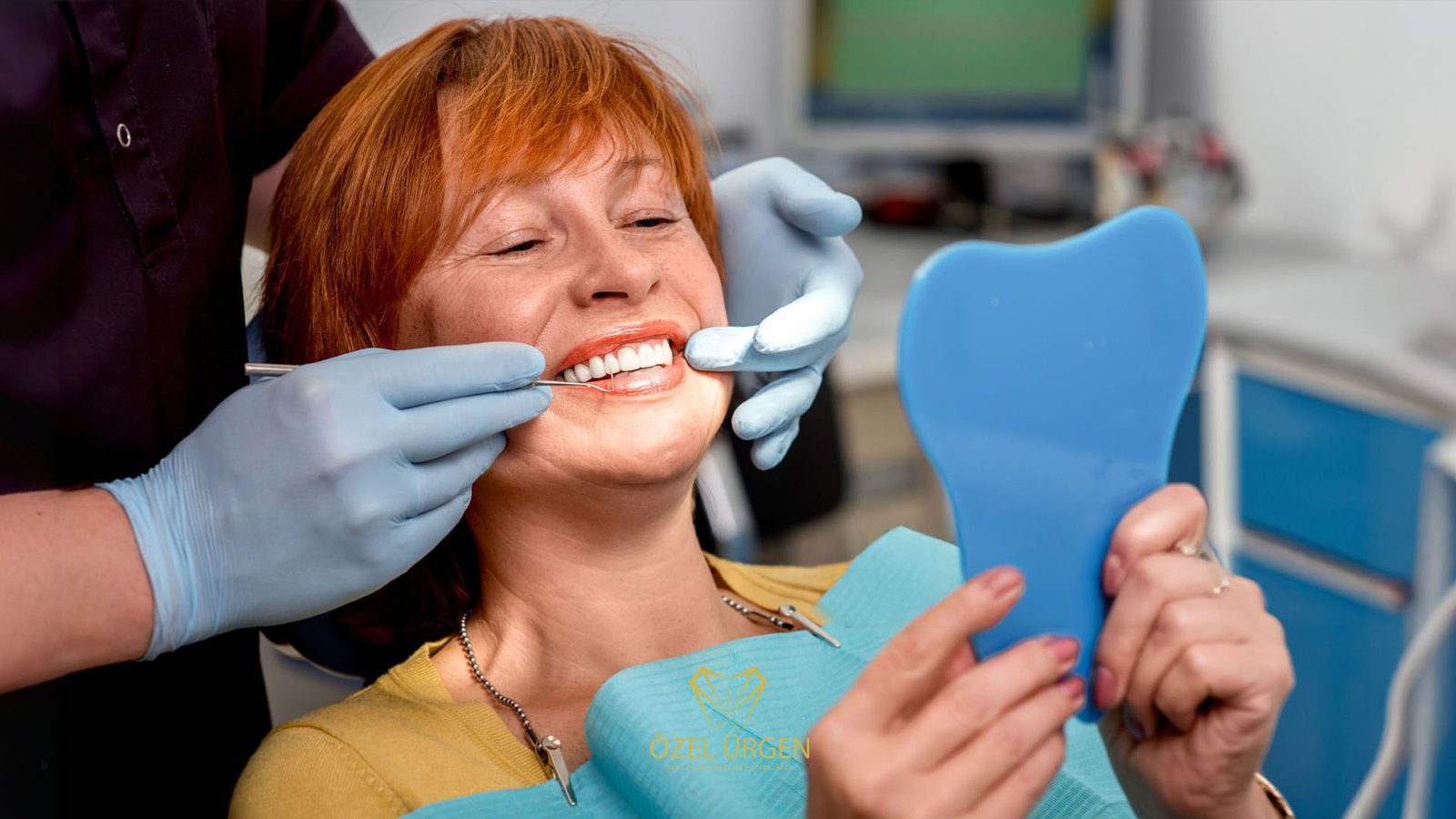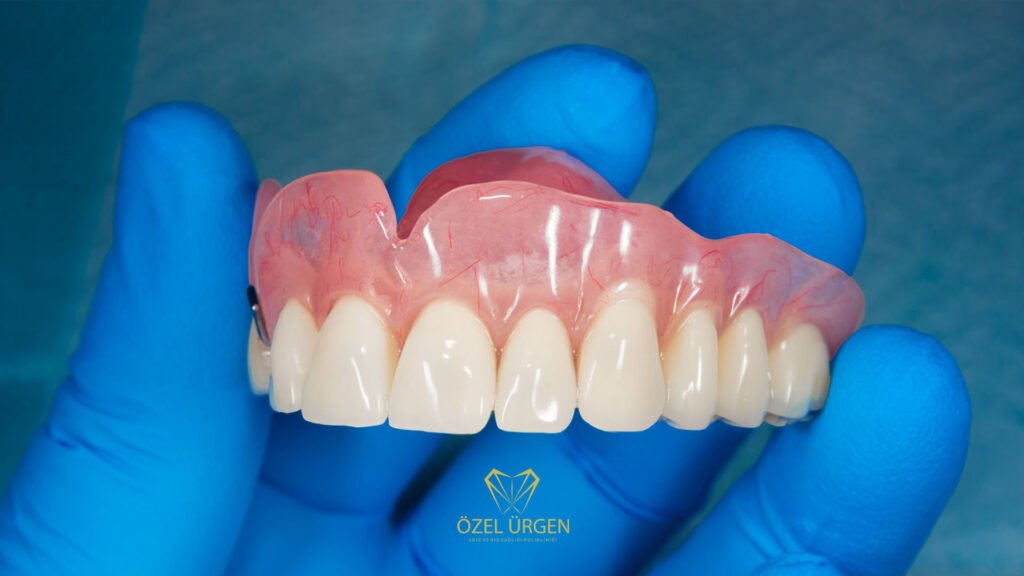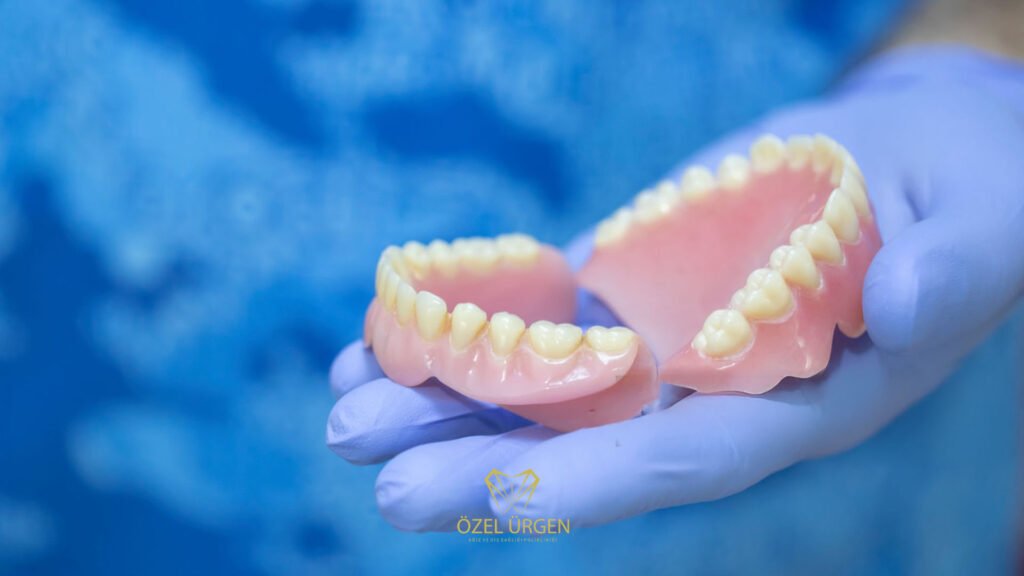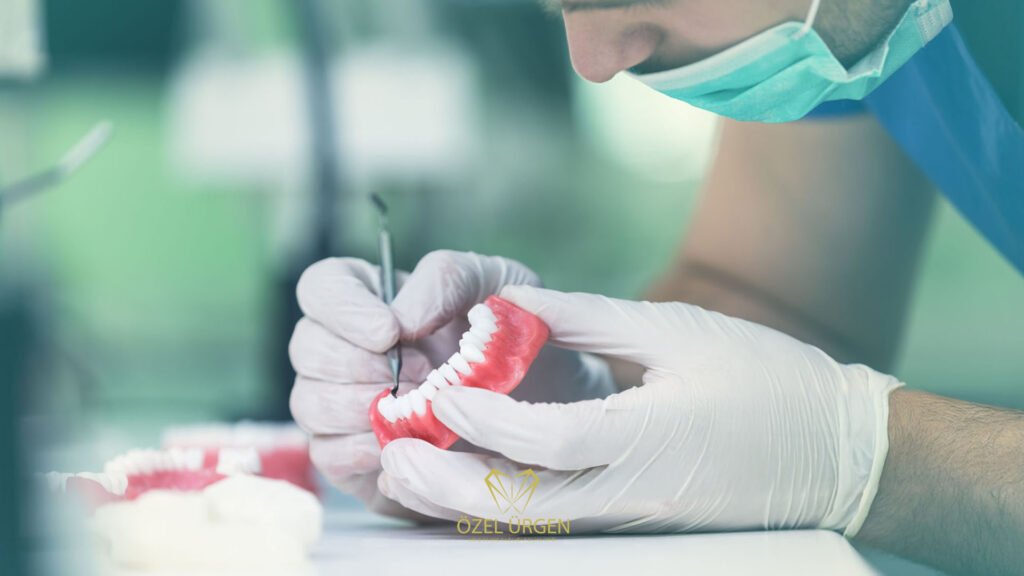- Mon - Fri 10:00 - 19:00
- Hacıhalil, Hükümet Cd. No : 80 Gebze/Kocaeli
- info@urgendis.com

Smiling is one of the strongest tools for self-expression and connecting with others. A healthy and aesthetic smile not only boosts confidence but also enhances overall quality of life. However, tooth loss for various reasons can lead to not only an unattractive appearance but also serious functional problems, affecting chewing, speaking, and overall oral health. Missing teeth may cause individuals to withdraw socially, have difficulty eating, and even experience negative impacts on general health.
At this point, prosthetic dental treatment comes into play. Prosthetics are modern dental treatments that replace missing teeth with new ones that are both aesthetic and functional. Thanks to technological advancements in dentistry, prosthetic teeth now have a much more natural appearance, maintain long-term durability, and provide patients with a very comfortable experience. In the past, prosthetics were often associated with heavy, artificial-looking structures, but today, prosthetics can be made to look almost indistinguishable from natural teeth while being highly functional.
Prosthetic dental treatment is an important procedure that replaces lost teeth with new teeth that are both aesthetic and functional. This treatment is not only for improving appearance; it also restores chewing function, supports speech, and helps maintain oral health. Missing teeth can cause neighboring teeth to shift, alter the jaw structure, and even lead to digestive issues over time.
By receiving prosthetic treatment, these negative effects can be prevented, maintaining a healthy oral structure while providing an aesthetic smile. In other words, prosthetics go beyond simply filling gaps—they are a comprehensive treatment option that improves overall quality of life.

Prosthetic dental treatment not only replaces missing teeth but also has many positive effects on oral health and overall quality of life. It enhances aesthetic appearance, providing a more attractive smile and boosting self-confidence. For individuals struggling to eat due to missing teeth, prosthetics offer great convenience; restoring chewing function allows food to be better broken down and aids healthy digestion.
Speech difficulties, often seen with the loss of front teeth, can also be corrected with prosthetic treatment, helping individuals express themselves more comfortably. Additionally, missing teeth over time can alter facial structure, cause sunken cheeks, and contribute to an aged appearance. Prosthetics prevent these changes and preserve the natural form of the face. Beyond aesthetics, healthy chewing supports proper digestion and positively impacts overall health. In short, prosthetic dental treatment provides significant functional and aesthetic benefits, markedly improving quality of life.
The prosthetic treatment process varies according to the patient’s needs but generally follows certain steps. First is the examination and planning phase, where the dentist thoroughly evaluates the patient’s oral and jaw structure, assesses the condition of missing teeth, and determines the most suitable type of prosthesis.
Next is the taking oral impressions phase. Prosthetics must be custom-made, so impressions of the patient’s mouth are taken with specialized tools. This ensures the prosthetic is perfectly tailored to the patient’s oral anatomy.
After impressions are taken, the prosthetics are placed during the trial phase. This is an important step to evaluate both the patient’s comfort and the aesthetic appearance of the prosthetic. If necessary, the dentist makes minor adjustments to improve fit.
Then comes the final placement phase. Fixed prosthetics are permanently attached to the teeth, while removable prosthetics are delivered to the patient with detailed instructions for use. Proper usage is crucial for long-term success.
The final step is the follow-up process. Some initial discomfort or fit issues are normal. Regular check-ups help resolve these problems, ensuring the prosthetics function optimally.

Prosthetic dental treatment is an effective solution for individuals who have lost teeth or experience functional problems with their existing teeth. Especially those who have lost one or more teeth can benefit from prosthetic treatment to restore both aesthetics and chewing function. Missing teeth not only affect appearance but, over time, can cause other teeth to shift and disrupt the jaw structure. Prosthetics prevent this process, helping to maintain oral health.
Additionally, patients with a jawbone structure suitable for implants may, in some cases, benefit from a combination of implant and prosthetic treatments. This combination allows for stronger, longer-lasting, and more comfortable results.
Prosthetic treatment is not only for health reasons; it also offers significant advantages for those concerned with aesthetics or wishing to renew their smile. A more attractive smile increases self-confidence and positively impacts social life.
Moreover, individuals who experience difficulty in chewing or speaking are also candidates for prosthetic treatment. Missing teeth can make eating difficult and affect the correct pronunciation of certain sounds, impacting daily life and overall health. Prosthetics address these issues, providing a healthier and more comfortable lifestyle.

Prosthetic dental treatment is one of the most common methods to replace missing teeth and achieve a healthy smile both aesthetically and functionally. However, many people first wonder, “What determines the price of prosthetic teeth?” when considering treatment.
In reality, it is difficult to give an exact price for prosthetic treatment because costs depend on many factors, including the materials used, the treatment process, the type of procedure, and individual needs. For example, completing a single missing tooth differs greatly in technique and labor from a full-mouth prosthetic application. Likewise, fixed prosthetics, removable prosthetics, and implant-supported prosthetics involve different techniques, which affects pricing.